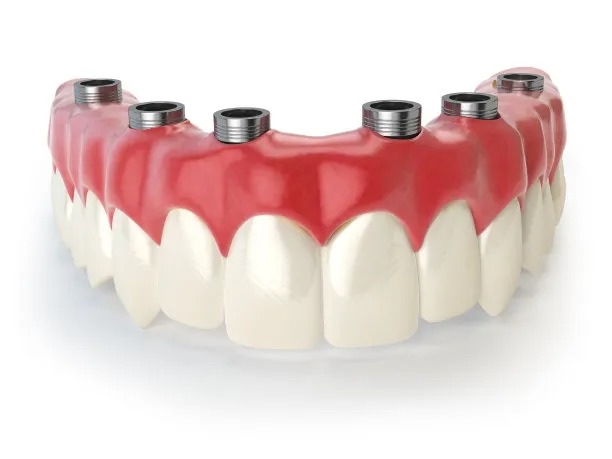Summary: Periodontal disease, a prevalent oral health issue, significantly impacts not only dental health but overall well-being. This article explores the intricate relationship between periodontal disease and systemic health, highlighting its potential roles in various health conditions. It also presents effective strategies for preventing and managing this condition, emphasizing the importance of personal oral hygiene, regular dental check-ups, and professional treatments. The discussion concludes with insights into lifestyle choices that can assist in maintaining periodontal health. By understanding and addressing periodontal disease, individuals can improve their overall health and quality of life.
1. Understanding Periodontal Disease: Definition and Causes

Periodontal disease refers to a spectrum of inflammatory conditions affecting the supporting structures of the teeth, primarily the gums. The primary cause of this condition is the accumulation of plaque, a sticky film of bacteria that forms on tooth surfaces. If not adequately removed through brushing and flossing, plaque can harden into tartar, leading to inflammation and gum disease.
Other factors contributing to the development of periodontal disease include genetics, hormonal changes, certain medical conditions, and lifestyle choices such as smoking. Individuals with diabetes, heart disease, or autoimmune disorders are at a higher risk, underscoring the importance of understanding how these conditions may influence periodontal health.
Moreover, poor nutrition can exacerbate periodontal disease. A diet low in essential nutrients can impair the immune response and promote inflammation, leading to a higher susceptibility to gum infections. Thus, recognizing the multifaceted causes of periodontal disease is crucial for effective management and prevention strategies.
2. Impact on Overall Health: The Systemic Connection
The implications of periodontal disease extend beyond the mouth, affecting overall health. Research has shown a strong association between periodontal disease and various systemic conditions such as cardiovascular diseases, diabetes, and respiratory diseases. The inflammatory process triggered by gum infections can increase systemic inflammation, potentially contributing to these serious health issues.
For instance, individuals with periodontal disease are at a greater risk for heart disease. The bacteria associated with gum infections can enter the bloodstream, leading to the formation of arterial plaque and increasing the risk of heart attacks and strokes. Furthermore, managing periodontal health can positively impact blood glucose levels in individuals with diabetes, highlighting the interconnectedness of oral and systemic health.
Additionally, there is emerging evidence that periodontal disease may influence pregnancy outcomes, leading to complications such as preterm birth and low birth weight. This significant impact highlights the importance of oral health care during pregnancy and reinforces the notion that periodontal health is vital for both mothers and their infants.
3. Prevention Strategies: Maintaining Healthy Gums
Preventing periodontal disease begins with robust oral hygiene practices. Daily brushing and flossing are fundamental in removing plaque before it can progress into gum disease. The American Dental Association recommends brushing twice a day and flossing at least once daily to maintain optimal oral health.
In addition to personal hygiene, regular dental check-ups are essential for preventing periodontal issues. Dentists can perform professional cleanings to remove tartar buildup and detect early signs of gum disease. Routine visits allow for personalized strategies that consider individual risk factors and provide appropriate interventions.
Moreover, adopting a healthy lifestyle plays a pivotal role in preventing periodontal disease. A balanced diet rich in vitamins and minerals supports overall health and strengthens the immune system. Quitting smoking is also critical, as it significantly increases the risk of developing gum disease. Therefore, lifestyle modifications, combined with a diligent oral care routine, lay the foundation for maintaining healthy gums.
4. Effective Treatment Strategies: Managing Gum Disease
For individuals already affected by periodontal disease, effective treatment strategies are critical. The severity of the disease will dictate the appropriate intervention. Non-surgical treatments, such as scaling and root planing, are often the first line of defense. This procedure involves thoroughly cleaning the tooth surfaces above and below the gum line to remove plaque and tartar.
In more advanced cases, surgical options may be necessary. Procedures like flap surgery can reduce gum pockets and regenerate lost tissue, while bone grafts can support a healthier structure. The choice of treatment should always be discussed with a dental professional to ensure the best possible outcomes.
Moreover, ongoing maintenance is essential after initial treatments. This includes regular follow-up visits and adherence to an effective oral hygiene regimen. Patients must be proactive about their gum health, as maintaining a dialogue with their dental team is essential for long-term success in managing periodontal disease.
Summary:
Understanding periodontal disease is vital for recognizing its impacts on overall health. By acknowledging its relationship with systemic conditions and implementing effective prevention and management strategies, individuals can make informed decisions about their oral care. This holistic approach not only improves periodontal health but also contributes significantly to overall well-being.
This article is compiled by Vickong Dental and the content is for reference only.
Vickong Dental
Vickong Dental is a large medical group established in Hong Kong in 2008 by professors from well-known medical universities in Guangdong and Hong Kong, as well as medical doctors from key national '985' universities (including Master's supervisors and senior professors). The chain of branches brings together expert dentists with PhDs and Master's degrees from Hong Kong and Mainland China, committed to providing high-quality dental treatment.
"Vickong Dental Practices the University Motto of 'Healing and Serving Society,' with a Stable Operation for Sixteen Years. It Has Been honored with Hong Kong Enterprise Leaders's Choice,' and is a Global Trusted Implant Center for the Nobel Implant System. Recommended by Hong Kong Metro Broadcast and Guangdong Television, it Serves Customers from Over Thirty Countries and Regions, Gaining the Trust and Favor of Citizens from the Guangdong-Hong Kong-Macau Greater Bay Area and Surrounding Cities.

Thousands of customers' unanimous praise
The most recognized and highly recommended dental service by customers in the Guangdong-Hong Kong-Macau Greater Bay Area
We Ensure You Receive Detailed Care and Attention Here
Hong Kong standards, Shenzhen prices, Your Trusted English-speaking dentists

Vickong Dental Medical-Grade Instrument Disinfection Process
Vickong Dental Medical-Grade Instrument Disinfection Process

Vickong Dental Chain: A Warm and Comfortable Environment for Treatment






Appointment Hours

Q&A
Why choose Vickong Dental?
Vickong Dental practices the university motto 「Medicine to Benefit Society」, with each branch bringing together highly qualified dentists with doctoral and master’s degrees from Hong Kong and the Mainland, and has maintained seventeen years of steady operation。Recipient of 「2024 Hong Kong Enterprise Leaders Brand」, 「2025 Hong Kong Enterprise Leaders Brand」, a Nobel Biocare Global Trusted Implant Center, and a brand recommended by Metro Radio Hong Kong and Guangdong TV。
To date, we have served customers from more than thirty countries and regions,earning exceptionally high word-of-mouth recognition and trusted recommendations from residents across the Guangdong-Hong Kong-Macao Greater Bay Area and surrounding cities
We have eight major branches in Zhuhai、Shenzhen,and a consultation and service assurance center in Hong Kong,so you can book a free consultation at any time for any questions,which is very reassuring.
If I do not accept the quotation after the CT scan, will I be charged??
No! As long as the actual treatment has not started, you will not be charged any fees.
Will there be any additional charges during the treatment process?
No, there won’t be any additional charges. Before treatment begins, we will clearly explain the treatment plan and its corresponding fees. Only after the patient agrees and signs the consent form will we proceed with the dental service.
Can I pay in Hong Kong dollars?
Yes. Vickong Dental accepts payment in Hong Kong dollars. The amount will be converted based on the exchange rate of the day, and the applicable rate will be clearly communicated to you in advance.
Can I reschedule my appointment at any time?
Yes. Please contact us via **WeChat** or **WhatsApp** as early as possible, providing your original appointment time and details, along with your preferred new date and time slot for rescheduling.













